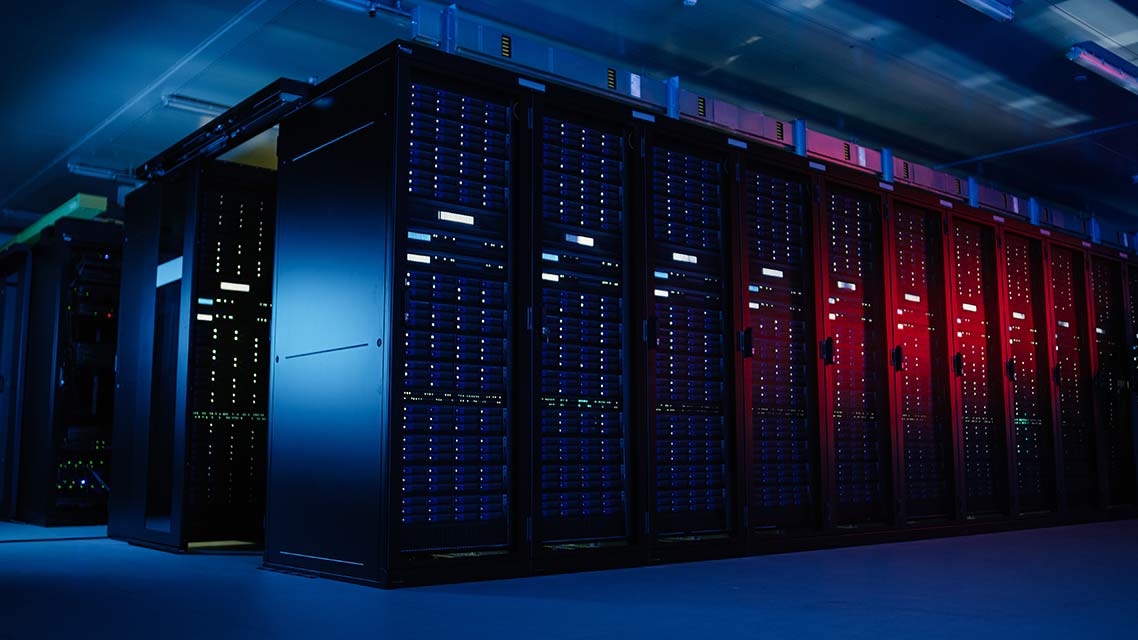Dedicated server – why do you need one?
Like many organizations, you probably opted for cloud computing when you first launched your web application, database, or mail server. After all, cloud computing services seem convenient, agile, and cost-efficient. But cloud services are not the only ones in the industry. Many are starting to realize that dedicated servers can be low cost, have higher throughput, and can be just as reliable as cloud computing. You may be thinking, “What is a dedicated server – and why should I opt for one?”
What is a Dedicated Server?
A dedicated server is precisely what its name suggests: a server dedicated entirely to your organization’s tasks and performance. Unlike a typical PC, a dedicated server consists of enterprise-grade hardware resources that organizations can leverage to power their business-critical applications.
With dedicated servers, you do not share CPU, RAM, or disk resources with other organizations. Sometimes, the phrase “bare metal servers” is used to describe dedicated servers because the user is close to the physical hardware, unlike cloud servers that use hypervisors to abstract the physical hardware.
Organizations can achieve the highest possible task speeds with a dedicated server because you don’t share the computing power or connectivity with another organization. Also, IT administrators have complete control over the server. As such, there are limitless use cases that you can achieve with dedicated servers. For example, you can use them for web hosting, database operations, email hosting, and reseller hosting.

Use Cases for Dedicated Servers
Organizations can use dedicated servers in a variety of ways, including:
Running mission-critical applications
Companies with business-critical applications should consider dedicated servers to improve uptime and reliability. Such applications, which may range from customer-facing applications to employee data, are crucial to the seamless operation of an organization. Besides reliability, dedicated servers improve workload control.
Running high-traffic websites
Hosting resource-intensive websites such as e-commerce stores is by far the most popular use of dedicated servers. Such websites receive thousands of concurrent requests and millions of hits per day. Rather than scaling out across many less powerful servers, an organization can scale up via a single dedicated server.
Hosting multiple websites
Most web-hosting service providers base their products on dedicated servers. This is because a high-end dedicated server can support unlimited websites, provided you ensure that its resource usage is within the resource constraints.
Running a dedicated firewall
Firewalls are necessary as the first line of defense against attacks in an organization. Yet commercial hardware and software can be costly. An organization can leverage a dedicated server as the first line of defense against cyber-attacks.
Hosting private clouds
An organization can use a dedicated server to run its private cloud and Virtual Machines (VMs). In addition, companies can implement public cloud hosting services and still run high availability services using high-end dedicated servers.

Benefits of a Dedicated Server
Beyond access to more bandwidth and disk space, dedicated servers also provide several other benefits:
- Improved performance: Dedicated servers can offer better performance for applications as they are not as stretched thin by multiple workloads being used by different organizations.
- Customizability: A dedicated server allows for more customization, such as micro-segmentation of a network or deploying specialized software. Shared hosting is more limited as not all organizations on the server may want or need the same customization.
- Data security: There is a reduced chance of data breaches with dedicated hosting. On shared servers, if one organization is compromised due to inefficient security infrastructure, that can put all other organizations hosted on that server at risk.
In conclusion, the kind of hosting you choose depends on your own organizational needs. If you have a small organization where performance or security is not a big deal, then shared hosting is the way to go. If you have the costs needed to get a high-performing, highly secure setup, then choose dedicated server hosting.